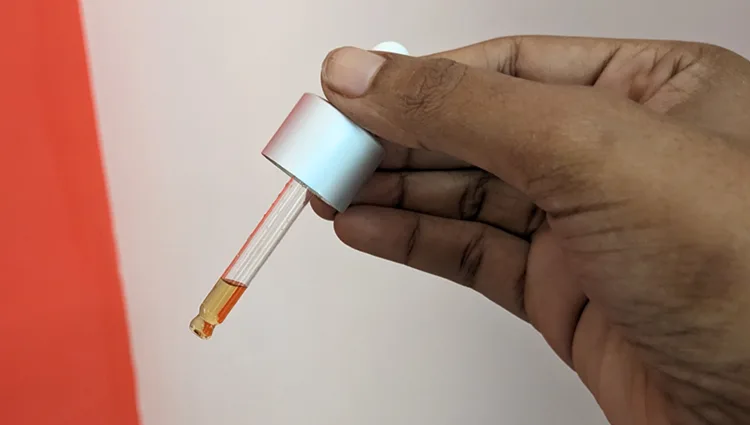In the pursuit of glowing skin, you’ve probably stumbled upon a myriad of products each vowing to deliver the perfect results. Among these options, Kojic Acid and Alpha Arbutin are often found in the ingredient list of skincare items. For those less acquainted with these terms, the scientific jargon can be intimidating. Still, understanding the benefits, functionality, and potential risks of these ingredients can truly help you make an informed skincare choice. So let’s dive into this comprehensive guide where we unveil these skincare secrets in simpler terms.

Kojic Acid: An Overview
Kojic Acid, a natural compound sourced from fungi, has made a significant mark in the skincare industry for its noteworthy skin-brightening properties. This ingredient works by inhibiting an enzyme called tyrosinase, which plays a pivotal role in producing melanin — the pigment responsible for the color of your skin, eyes, and hair. So, Kojic Acid essentially helps reduce excessive melanin production, offsetting sun damage, age spots, and acne scars, to name a few.
You would commonly come across this natural lightener in topical treatments like serums, lotions, creams, and even soaps. Cosmetic products typically contain Kojic Acid at concentrations of 2% or less. The Cosmetic Ingredient Review (CIR) Expert Panel considers it safe for cosmetic use in concentrations up to 1 percent. However, it’s crucial to note that Kojic Acid might cause allergic reactions in some individuals, so a patch test is recommended prior to full application.
People with dry or sensitive skin might want to avoid using Kojic Acid, as it can be irritating. Additionally, sun protection is essential when using it, as it may increase skin sensitivity to sunlight. It’s also critical to avoid its use on damaged or broken skin and to discontinue if any allergic reaction occurs.
Beyond its lightening capabilities, Kojic Acid also boasts antimicrobial and antifungal attributes, ranking it as a valuable ally against bacterial-induced acne and common skin fungal infections. Its continuous use in soap form can even act as a preventive measure against these skin issues! It’s always wise to consult with a dermatologist before incorporating Kojic Acid into your skincare routine to ensure you’re using it in the right way and amount.
Alpha Arbutin: An Overview
Alpha Arbutin is a form of arbutin, a skin-lightening and depigmenting agent originating from various plant species like bearberry, wheat, blueberry, cranberry, and pear trees. It can be derived naturally from plant sources or created synthetically. Similar to Kojic Acid, Alpha Arbutin inhibits tyrosinase activity, helping to fade discolorations and even out the skin tone. Often referred to as “natural hydroquinone,” Alpha Arbutin is touted as a safer alternative to the controversial ingredient hydroquinone.
By competitively inhibiting melanosome maturation, Alpha Arbutin is less cytotoxic to melanocytes than hydroquinone. Its optimal usage levels in skincare products typically range from 0.5 to 2%. Even though the complete method of action of Alpha Arbutin is not fully understood, studies suggest that its antioxidant properties play a significant role in its depigmenting abilities. Some theories also propose that trace amounts of hydroquinone, potentially produced as a by-product when arbutin decomposes, may additionally contribute to the depigmenting effects of Alpha Arbutin.
It’s important to note that higher concentrations might lead to paradoxical hyperpigmentation, so finding the right balance in formulations is crucial. For advice on how to incorporate α-arbutin into your routine, consulting a dermatologist is recommended.
Which is More Effective: Kojic Acid or Alpha Arbutin?
Some studies have looked into the performance of Kojic Acid and Alpha Arbutin when it comes to treating hyperpigmentation. One study, in particular, found that while both ingredients showed promising results, Kojic Acid seemed to be a better choice. This conclusion was reached because Kojic Acid was able to inhibit tyrosinase activity without causing cytotoxicity.
It’s important to note that the combination of both ingredients in skincare products has been shown to work synergistically. This means that using a formula that contains Kojic Acid and Alpha Arbutin could potentially result in more effective treatment of hyperpigmentation. When used consistently and in optimal concentrations, visible changes may take several weeks to appear, but the results can be worth the wait.
Are Kojic Acid and Alpha Arbutin Safe?
As with all skincare ingredients, safety matters. Both Kojic Acid and Alpha Arbutin have been considered safe for use in cosmetic products within certain concentrations. However, both can impart side effects in some individuals.
Kojic Acid can cause allergic reactions in certain individuals. It’s also not recommended for those with dry or sensitive skin, due to its possible irritating effects. Moreover, Kojic Acid can increase your skin’s sensitivity to the sun, making sunscreen an absolute necessity when using products containing this ingredient.
Alpha Arbutin, despite considered safer than hydroquinone, it’s not without potential risks. Products containing Arbutin can sometimes cause dermatitis, making it crucial to approach usage with caution. Besides, there exist concerns about the potential generation of hydroquinone during product usage, which has potential harmful risks. Incorporating sunscreen with skin-lightening agents can help reduce the incidence of adverse effects.
Final Verdict
As illustrated above, choosing between Kojic Acid and Alpha Arbutin can be a challenging decision. Both ingredients offer skin-lightening benefits, but some research suggests that Kojic Acid may be the better option due to its ability to reduce melanin content without affecting cell viability. However, if you want the most effective treatment for hyperpigmentation, it is worth considering a product that combines both ingredients to achieve synergistic effects.
